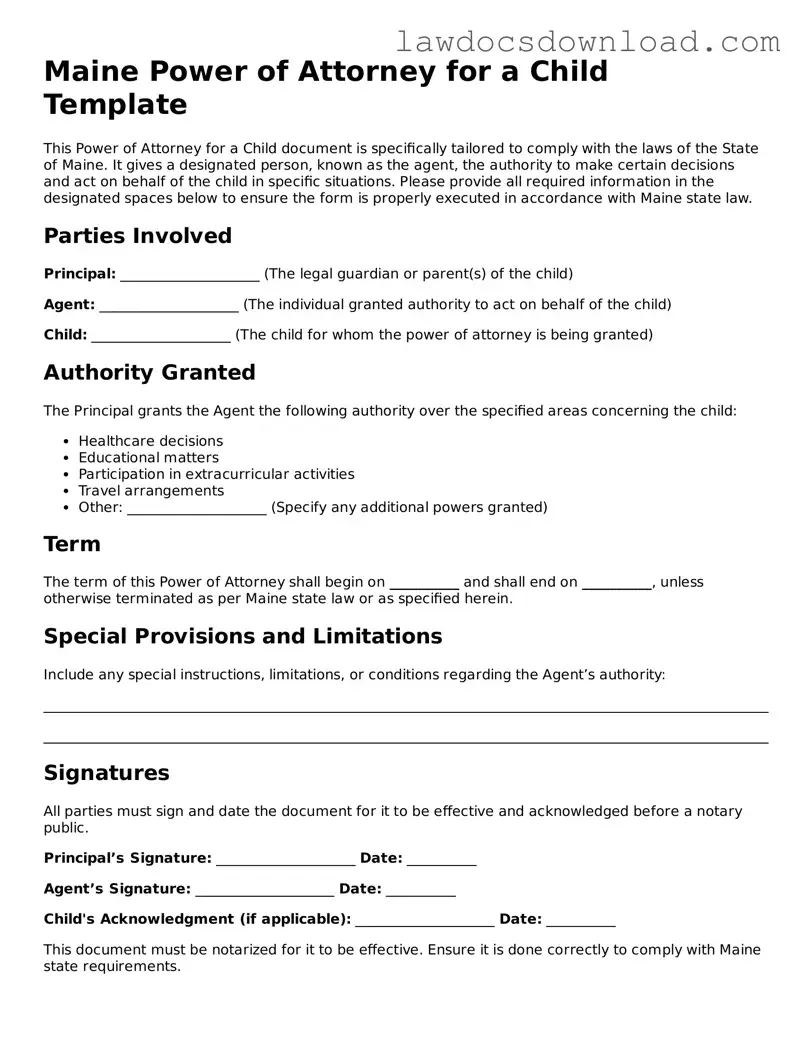Legal Maine Power of Attorney for a Child Form
The Maine Power of Attorney for a Child form is a legal document that enables a parent to grant another person the authority to make decisions regarding their child's care, education, and welfare for a temporary period. This form is particularly useful in situations where the parent might not be able to fulfill their duties due to various reasons, such as illness or travel. It ensures that the child's needs are met without the need for formal custody arrangements.
Launch Power of Attorney for a Child Editor Here

Legal Maine Power of Attorney for a Child Form
Launch Power of Attorney for a Child Editor Here

Launch Power of Attorney for a Child Editor Here
or
Free Power of Attorney for a Child
Get this form done in minutes
Complete your Power of Attorney for a Child online and download the final PDF.